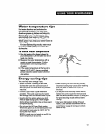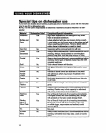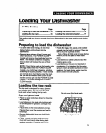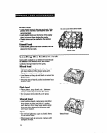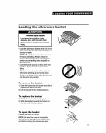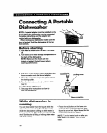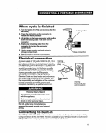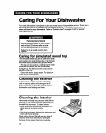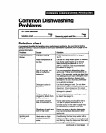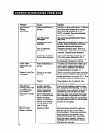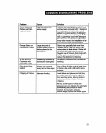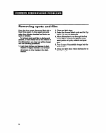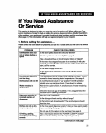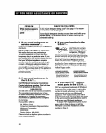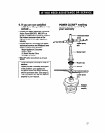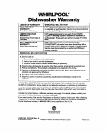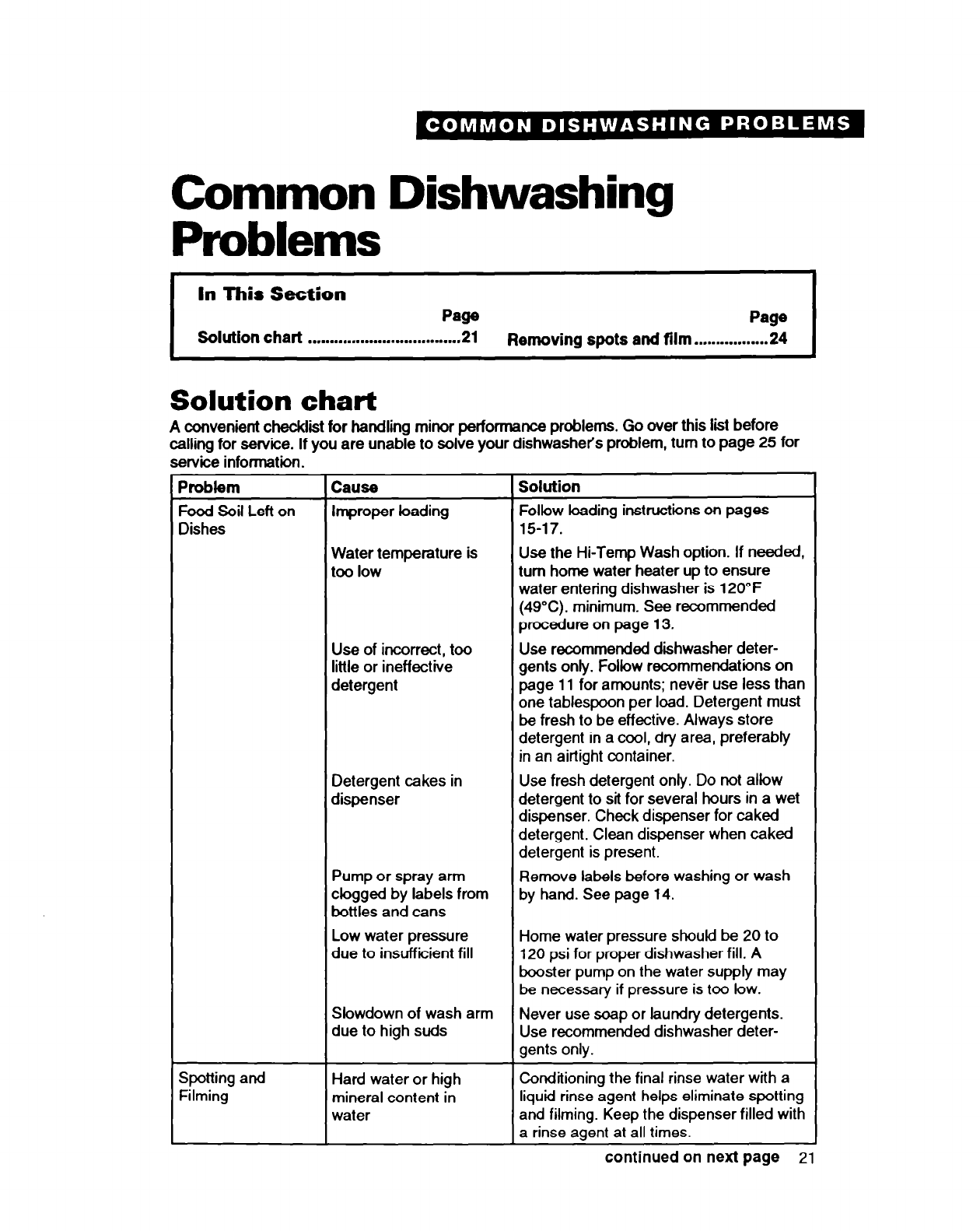
Common Dishwashing
Problems
C ‘iY
. . . . . . . . ..m........................
Removing spots and film . . . . . . . . . . . . . Z
Solution chart
A convenient checklist for handling minor performance problems. Go over this list before
calling for service. If you are unable to solve your dishwasher’s problem, turn to page 25 for
service information.
Problem
Fad
Soil Left on
Dishes
Cause
Improper Loading
Water temperature is
too low
Use of incorrect, too
little or ineffective
detergent
Detergent cakes in
dispenser
Pump or spray arm
clogged by labels from
bottles and cans
Solution
Follow loading instructions on pages
15-17.
Use the Hi-Temp Wash option. If needed,
turn home water heater up to ensure
water entering dishwasher is 120°F
(49°C). minimum. See recommended
procedure on page 13.
Use recommended dishwasher deter-
gents only. Follow recommendations on
page 11 for amounts; never use less than
one tablespoon per load. Detergent must
be fresh to be efl ective. Always store
detergent in a cool, dry area, preferably
in an airtight container.
Use fresh detergent only.
Do
not allow
detergent to sit for several hours in
a
wet
dispenser. Check dispenser for caked
detergent. Clean dispenser when caked
detergent is present.
Remove labels before washing or wash
by hand. See page 14.
Low water pressure Home water pressure should be 20 to
due to insufficient fill
120 psi for proper dishwasher fill. A
booster pump on the water supply may
be necessary if pressure is too low.
Slowdown of wash arm
Never use soap or laundry detergents.
due to high suds
Use recommended dishwasher deter-
gents only.
Spotting and
Filming
Hard water or high
mineral content in
water
Conditioning the final rinse water with a
liquid rinse agent helps eliminate spotting
and filming. Keep the dispenser filled with
a rinse agent at all times.
continued on next page 21



